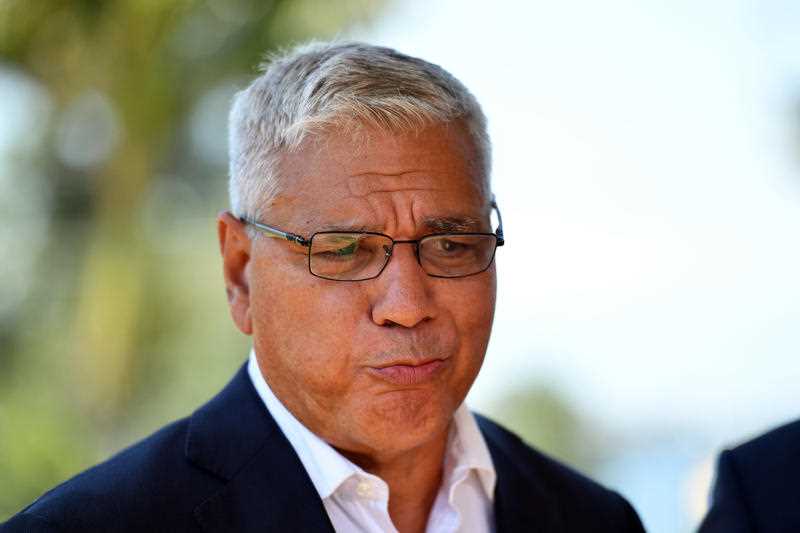One of the loudest voices in the campaign against an Indigenous voice to parliament wants to be convinced to switch sides.
Aboriginal businessman Warren Mundine is a key figure on the “no” side.
Mr Mundine said one of the reasons he was prosecuting the argument was to get the “yes” campaign to step up its game ahead of the referendum.
“It’s a challenge – I like challenges and I want to challenge them to get it right,” he told AAP.
Mr Mundine is a polarising figure within Aboriginal communities and a self-confessed contrarian.
Unapologetically pro-mining, he has a deep-rooted belief in the power of business to affect change but also clings to his activist roots, planted in the Aboriginal-led protests of the 1980s.
A former national president of the Labor Party, Mr Mundine switched political allegiance to the coalition and was appointed by Tony Abbott to head up his hand-picked Indigenous Advisory Council in 2013.
“Everywhere I go there’s goodwill for Aboriginal people and they’re sick and tired of the bullshit,” he said.
“They want things to move forward. Real self-determination and power comes through economic prosperity, then you can stick it up ’em.”
One of Mr Mundine’s main reservations about the voice is that it will introduce an extra level of bureaucracy.
“I don’t disagree with the philosophy behind the idea, it’s the practicality, the day-to-day working,” he said.
“I’m just tired of seeing people suffering due to poverty and I don’t think the voice is really going to fix that.”
Mr Mundine said he supported listening to people whose voices might not otherwise be heard, but economic development was the key to success for Indigenous communities.
“Part of it is pushing the yes campaign to actively focus on these things, to come up with something,” he said.
Mr Mundine admits he wants to be convinced to say “yes” in the referendum.
“I’m always good at switching,” he said.
Prime Minister Anthony Albanese on Sunday reiterated that the voice was about two things: recognition and consultation.
“Recognition of Aboriginal Australians in our nation’s birth certificate, that’s the ‘what’,” he told Seven’s Flashpoint program.
“And ‘how’ is through a voice, by consulting Aboriginal Australians on matters that affect them,” he added.
Mr Albanese said the buy-in and engagement through an enshrined voice to parliament would improve the lives of Aboriginal and Torres Strait Islanders over time.
“Is solving intergenerational issues easy? No. Will things change instantly? No,” he said.
“But you’ve also got a think about the counterfactual – what will the consequences be if there is a no vote in Australia?”



